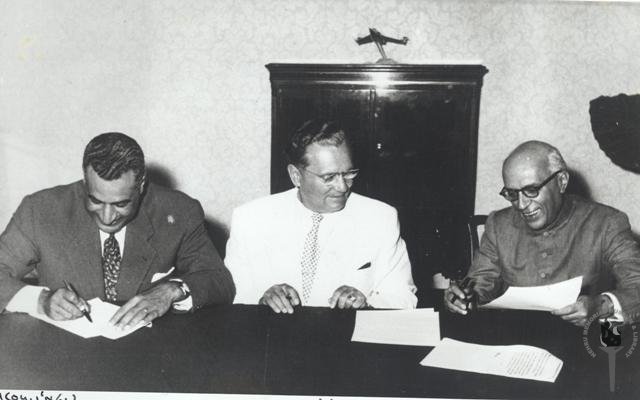
Prime Minister Narendra Modi's absence at the 17th Non-Aligned Movement (NAM) summit, currently being held in Venezuela's Margarita Island, has caused concern and raised a few eyebrows. The summit is being attended by the heads of more than 120 countries.
Vice President Hamid Ansari, who is en route to Venezuela to attend the summit that began on Tuesday and concludes on Sept. 18, is filling in for the prime minister. Modi's absence is significant as this makes him the second PM after caretaker prime minister Charan Singh -- he gave the summit a miss in 1979 -- to miss the summit since the NAM movement was founded in Belgrade in 1961. The movement was founded by Jawaharlal Nehru, Indonesia's first president Sukarno, Egypt's second president Gamal Abdel Nasser, Ghana's first president Kwame Nkrumah and Yugoslavia's president Josip Broz Tito.
Prime Minister Modi's absence has now given rise to a slew of speculations. While some suggest that the summit is deliberately being ignored to dissociate the BJP from the legacies of Congress (founding member of NAM), others contend that it does not fit well with the recent posturing that shows India as a keen supporter of neoliberal policies of the United States. Some others have considered the NAM irrelevant in geopolitics of the 21st century.
In the same light, analysts speculate that India's presence at the summit would be an oxymoron. While the host country Venezuela, which is reeling under a massive economic crisis that has caused looting and food riots, wields the pen and circulates a "zero draft" in advance for inputs from member countries, India, which is touted as the fastest growing economy of the world, may find expressing solidarity with Venezuela impalpable.
Even though this idea has been criticised, as India was seen energetically participating in an outreach endeavour to court the developing world in the BRICS meeting, the Opposition has already jumped on the opportunity to discredit Modi.
"If PM Modi doesn't wish to honour NAM, it will just show that the government is dumping all former foreign policy in a wholesale manner. But Indians have grown up on the idea of non-alignment, and it may not be as easy for him to explain this decision," Salman Khurshid, former external affairs minister, told the Hindu.
Though comments on the matter can only be made only once Vice President Ansari addresses the summit, India's declining role in NAM might represent a few missed opportunities.
When NAM began from the ashes of the colonial rule in 1961, it aimed at bolstering independence of the new states from global power blocks whose military obligations and economic entanglements were a hindrance to achieving political sovereignty. It also campaigned against the arms race that had put the fear of nuclear annihilation across the planet.
In the halcyon days of NAM, it announced a push for an alternative economic order that later materialised into the New International Economic Order (NIEO) introduced in 1973, but ultimately collapsed due to debt crisis.
India can continue to lead the developing world, if it breathes fresh life in the charter of NAM and reignites its vision of eradicating war and poverty.















